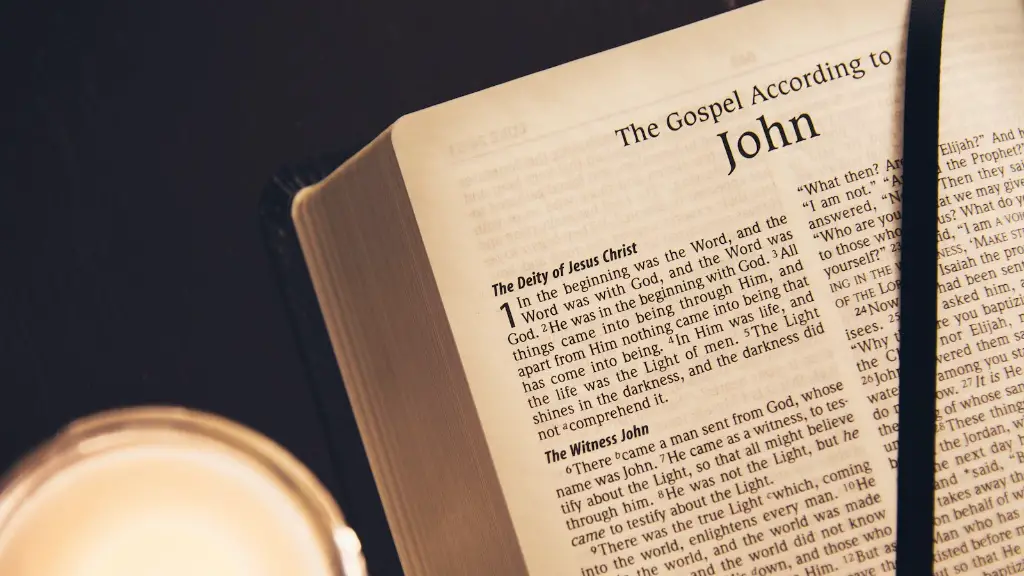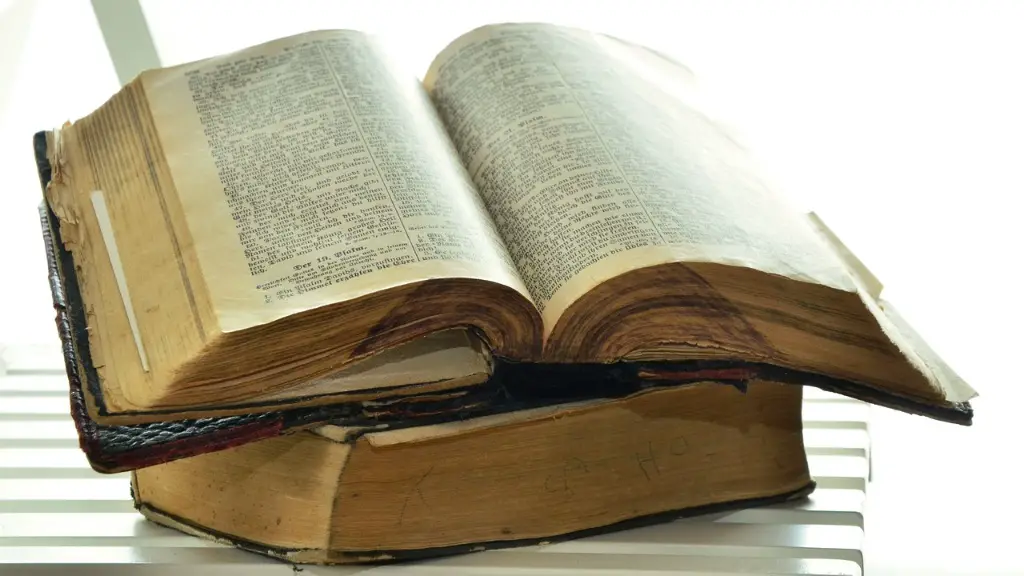Canaan was mentioned in the Bible as the son of Ham, who was one of the three sons of Noah. Canaan was the grandson of Noah through Ham. Canaan’s father, Ham, had displeased Noah by either laughing at him or committing incest with his own mother. As a result of this, Noah cursed Ham and his descendants, which included Canaan (Genesis 9:20-27). Noah’s curse on Canaan was that he would be a “servant of servants” to his brothers Shem and Japheth. It is unclear exactly what this curse entailed, but it was thought to be a sign of servitude and inferiority.
Canaan was one of the sons of Ham, who was one of the sons of Noah. Canaan was the father of the Canaanites, who were one of the nations who inhabited the land of Canaan.
What does Canaan represent in the Bible?
The Bible is a religious history of the Israelites in Canaan. The Old Testament, also known as the Tanak, is focused on the religious history of the Israelites. The Israelites were commanded by God to Exodus from Egypt and conquer the land of Canaan. The Canaanites were the people who were living in the land at the time. The Israelites disposed of the Canaanites and took over the land.
The Israelites were instructed by God to conquer the Canaanites and drive them out of the land because of the Canaanites’ religious and cultural practices. The Canaanites were idol worshipers and their practices were an abomination to God. The Israelites were to end the Canaanites’ religious and cultural practices, not their lives. The problem wasn’t the people, but idolatry.
Who did God promise Canaan
This verse, from Genesis 12:7, is often used by Christians to support the idea that God has promised the land of Israel to the Jewish people. While this may be one interpretation, it is important to remember that the Bible is open to multiple interpretations and that this is just one possible understanding of this particular verse.
The name “Canaan” appears throughout the Bible as a geography associated with the “Promised Land.” The demonym “Canaanites” serves as an ethnic catch-all term covering various indigenous populations—both settled and nomadic-pastoral groups—throughout the regions of the southern Levant or Canaan. The Canaanites were a Semitic-speaking people who were likely related to the Amorites and other groups in the area. The Canaanites occupied the land of Canaan, which was situated in the area of modern-day Israel, Lebanon, and Syria. The Canaanites were a major source of conflict for the Israelites, who eventually conquered and drove them out of the land.
What does the word Canaan mean?
Canaan was an ancient region located between the River Jordan and the Mediterranean Sea. It was roughly the same size as modern-day Israel. The Israelites, also known as the Hebrews, were promised this land by God. They were supposed to settle here and live peacefully. Unfortunately, this didn’t happen. The Canaanites, who were already living in the land, didn’t want to share it with the Israelites. This led to centuries of conflict between the two groups.
Yahweh promised Abraham that if he followed these laws, he would found a great nation that would live in a land flowing with milk and honey. This land, known as Canaan in ancient times, is roughly located in the same place as modern-day Israel.
Who are Canaanites today?
The people of modern-day Lebanon can trace their genetic ancestry back to the Canaanites, new research finds. The Canaanites were residents of the Levant (modern-day Syria, Jordan, Lebanon, Israel and Palestine) during the Bronze Age, starting about 4,000 years ago. The new research shows that the genetic ancestry of the people of Lebanon is largely derived from the Canaanites, with a smaller contribution from other groups, such as the Ancient North Africans. This research provides an insight into the genetic history of the people of Lebanon and the region, and will be of interest to those with ancestry in this area.
Canaanite religious beliefs were polytheistic, with families typically focusing on veneration of the dead in the form of household gods and goddesses, the Elohim, while acknowledging the existence of other deities such as Baal and El, Mot, Qos, Asherah and Astarte.
Who did the Canaanites worship
Baal was one of the most important gods in the ancient Middle Eastern pantheon, and was worshipped by many communities as a fertility deity. He was known for his power over the elements, and was said to be able to bring rain and storms.
Noah became drunk and cursed Canaan for his father Ham’s sins. This is the Curse of Canaan, also called the “Curse of Ham.” Canaan was punished because his father Ham sinned.
Why did God want Abraham to go to Canaan?
Abraham was a great man of faith who obeyed God unconditionally. He left his home and everything he knew to go to an unknown land because God called him to. He didn’t know where he was going or what he was supposed to do when he got there, but he went anyway because he trusted that God would lead him. And God did. Abraham’s obedience and faithfulness was rewarded with the promise that his descendants would inherit the land of Canaan. This is a great example of what it means to follow God wholeheartedly. It’s not always easy, but it is always worth it.
Abraham was the first patriarch of the Hebrew people. He is an important figure in Judaism, Christianity, and Islam. According to the Bible, Abraham was instructed by God to leave his home and travel to Canaan, the Promised Land. Canaan is today known as Israel. Abraham is considered the father of the Jewish people because he was the first to believe in one God. He is also considered the father of the Arab people because his son, Ishmael, was the ancestor of the Arabs.
Why did the Hebrews call Canaan the Promised Land
The concept of the Promised Land is based on verses in the Tanakh (the Hebrew Bible or the Old Testament), in which God speaks to Abraham. The promises given to Abraham happened prior to the birth of Isaac and were given to all his offspring signified through the rite of circumcision.
The ancient Egyptians were a fascinating people, with a rich culture and history. They had a powerful centralized government that ruled along the Nile River, where the Pharaohs built the pyramids of Giza. The ancient Egyptians worshipped their Pharaohs like gods, and they had a very stratified society. In contrast, the ancient Canaanites were a much more decentralized people, with a lot of warring city-states and hill tribes. They were spread out over what are now Israel, Lebanon, southwestern Syria, and the West Bank. The Canaanites also had a very different religion from the Egyptians, and they did not worship their rulers in the same way.
What does Canaan mean in Hebrew?
The Hebrew name Kena’an derives from the word “kana”, meaning “to be brought down by a heavy load”. By extension, it means “humble” or “subdued”. In the Hebrew Bible, Canaan was a son of Ham and a grandson of Noah who founded the Canaanite tribe.
The Canaanites were people who lived in the land of Canaan, an area which according to ancient texts may have included parts of modern-day Israel, Palestine, Lebanon, Syria and Jordan. Much of what scholars know about the Canaanites comes from records left by the people they came into contact with. The Canaanites were a Semitic people, and their language was closely related to Hebrew and Phoenician. They were known for their trades in metals and jewelry, and their skill in agriculture. The Canaanites also played an important role in the development of the alphabet.
Conclusion
Canaan was a figure in the Bible who was the son of Ham and the grandson of Noah. He was the father of the Canaanites, who were an ethnic group who lived in the ancient Levant.
In the Bible, Canaan was the son of Ham and the grandson of Noah. He was the father of the Canaanites, who were an ancient people who lived in the area that is now modern-day Lebanon, Israel, and the Palestinian territories.





